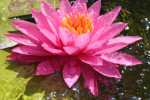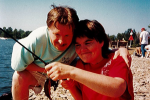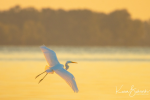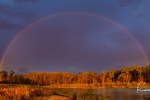The only prerequisite for prayer is a broken heart.
—Hasidic wisdom
The Tales of the Hasidim tell of a rabbi who promised the people that if they studied the Torah, it would put the Scripture on their hearts. One of them asked, “Why ‘on’ our hearts and not ‘in’ them?” The rabbi answered, “Only God can put Scriptures inside. But reading sacred text can put it on your heart, and then when the heart breaks, the holy words will fall inside.”
“Then when the heart breaks,” the rabbi said, “the holy words will fall inside.” When the heart breaks …
So many things break a heart open in life. Sometimes it’s beauty, often it’s pain, always it’s love. Sometimes it is the sheer weariness of getting up day after day after day to the life that never changes.
Sudden bursts of beauty lift the scales from our eyes. We begin to see differently. A rose enduring through the early winter snow in our backyard can do it every time.
A graveside agony is sure to stop our stride a bit, make us think again about what life is about, shake us to our moorings.
Passion turns life a brighter gold than we ever imagined it could be. It leaves us full of wonder, full of faith, full of the consciousness of a smiling universe.
Long, slow, unyielding burdens—a child whose problem no one can name, a purse forever thin, distance where we would hope for help. Eventually, then, the heart dries out from the lack of nurture and the fissures begin to form.
Then what happens to us?
The rabbi says that it all depends on what we have been putting on our hearts all these years.
Money will not solve much when the heart hurts and there is no cure for it. Infatuation heals only as long as the chemistry lasts. Then, we are back to the center of ourselves again with no one else anywhere in sight. Beauty leaves us full of awe but shifts from season to season with no one in sight to blame for the last loss of it. Pain leaves us crying in the wind, alone and in a darkness no amount of light can penetrate.
Only the life beyond life makes sense of any of it. Then, if we have stayed close to the story of God’s presence in life, we can bear any burden, survive any loss, absorb however much beauty without dying from the breathless glory of it, and give ourselves to the other side of love—the side that gives as well as takes.
It is the Scriptures on our heart that remind us of “the lilies of the field,” the emptiness of the day before the Resurrection, the despair of the one who “had not stood up straight for 30 years,” the exhilaration of those who first said, “I have seen the Risen Christ.”
But only if, as the rabbi says, we have already put them there. Prayer, regular and unceasing, is what prepares us for life in all its dimensions.
Thursday, September 1: To give time to prayer is to giver another kind of time to life: the kind that gives it meaning and foundation.
Friday, September 2: Prayer is what provides another kind of energy, another kind of strength in times that demand more than the ordinary of us.
Saturday, September 3: Prayer is not simply recitation of formulas, good as these may be. Often prayer is not a ritual at all. It is simply coming to live the life of Jesus by coming to know the life of Jesus and applying it to our own.
Sunday, September 4: When the soul is full of the life beyond life, the body becomes less demanding. “Good for the body is the work of the body,” Thoreau wrote, “and good for the soul is the work of the soul, and good for either is the work of the other.”
Monday, September 5: When the soul is not ready for the life-changing surprises of life, neither is the body or the heart.
Tuesday, September 6: Abba Anthony read a text from Scripture to his disciples and, beginning with the youngest, asked them what it meant. Each gave an opinion, but to each the old man said, “You have no tunderstood it.” Last of all, he turned to Abba Joseph who was also present and said, “How would you explain this saying?” Abba Joseph replied, “I do not know.” Then Abba Anthony said, “Indeed, Abba Joseph has found the way, for he has said, “I do not know.” This story reminds us that immersion in Scripture doesn’t result in “knowing” what anything “means.” It only means that we come to know better and better in every sentence that we read every day of our lives that divinity is at the depth of us calling us on.
Wednesday, September 7: The Scriptures are the story of God’s ways with the world, of God’s presence in life. They give us certitude in uncertain times. “Have courage for the great sorrows of life,” Victor Hugo wrote, “and patience for the small ones and when you have laboriously accomplished your daily task, go to sleep in peace.”
Thursday, September 8: Religious practice is our daily preparation for the eternal. More than that, it is our daily preparation for the daily.
Friday, September 9: Putting off the spiritual dimension of life only makes the daily dimensions more and more meaningless. “Now that it’s all over,” Coleman Cox wrote, “what did you really do yesterday that’s worth mentioning?”
Saturday, September 10: We exercise the body as if it were going to last forever and we ignore the soul that will.
Sunday, September 11: The spiritual life is not reserved for holy days. It is the essence of the ordinary. “Spirituality is the sacred center out of which all life comes,” Christina Baldwin says, “including Mondays and Tuesdays and rainy Saturday afternoons in all their mundane and glorious detail…. The spiritual journey is the soul’s life commingling with ordinary life.”
Monday, September 12: The spiritual life is the life that unites body and soul. It gives us the integrity that comes from being who we say we are and then doing what we must to stay on the road to the Spirit that draws us like a magnet draws metal.
Tuesday, September 13: We never forget to eat, we are very regular about going to work, we wouldn’t think of missing a day of television. How is it then, that we simply ignore the demands of the soul for purpose, for meaning, for immersion in the Spirit because doing that every day is too hard to fit in? “In this age, which believes that there is a short cut to everything, the greatest lesson to be learned,” Henry Miller wrote, “is that the most difficult way is, in the long run, the easiest.”
Wednesday, September 14: To be a person of spirit, we must live in the Spirit. We must come to understand the life of God as we learn it through the Scriptures as well as we understand our own life and all its hidden dimensions.
Thursday, September 15: What we do or do not pour on our souls will in the end somehow, someday, save our lives or doom them to perpetual despair.
Friday, September 16: When we wait for religious institutions to make us spiritual, we ignore their first instruction: We are all responsible for it ourselves. “Work out your own salvation,” Paul Carus wrote. “Do not depend on others.” “Come, follow me,” Jesus said. Point: God only calls us. The going depends on us.
Saturday, September 17: We’re all too busy these days to spend much time on a theology of life, a philosophy of living, we say. But what does that mean that we’re doing? And what good is it in the end? As Oprah Winfrey put it: “The essential question is not, ‘How busy are you?’ But ‘What are you busy at?’”
Sunday, September 18: We can all hope to be mellow, to be happy, to be secure, to be spiritually strong in old age, but hope is not enough. “The best way to predict your future,” Peter Drucker taught, “is to create it.”
Monday, September 19: What is a spiritual life? It is the assurance inside ourselves, no matter what is going on outside ourselves, that God is good and that this present pain will pass. But the only way that can happen is if we have taken time all our lives to ponder the words that prove it.
Tuesday, September 20: When our hearts get broken open, it is only what we poured out on them that will take flower. If it is materialism, we will only know that things have failed us. If it is the Scripture, we will know that God is with us now as God has always been active in the world since the beginning of time.
Wednesday, September 21: Why do we go to church? Why do we learn to spend time with Scripture? Why do we develop prayer practices that carry us through time? “Ritual,” Christina Baldwin says, “is the spark that must not go out.” It will, eventually, bring light to darkness, sight to the blind of heart, understanding into the midst of chaos.
Thursday, September 22: Seeking God is a lifelong enterprise. We are not supposed to be perfect at it every moment of our lives. But we are to lead a life that will someday come to perfect understanding, perfect faith, perfect surrender.
Friday, September 23: We cannot ever hope to understand life. But if we are truly spiritual people, we will come to know that understanding it is not what is important. Only living it in tune with the Spirit is necessary.
Saturday, September 24: Don’t be afraid to talk spiritual talk with people. You would be surprised what an exciting conversation it can be. After you get over the embarrassment, of course.
Sunday, September 25: The spiritual life depends on our ability to challenge every story in Scripture with questions: Why this? Why not that? And what can it possibly mean to me here and now?
Monday, September 26: The spiritual life is a life immersed in the Scriptures. It questions the Scriptures of the past in order to grow in the present. It wants to know for instance, why God didn’t save Abel from Cain’s bloody jealousy? The spiritual life doesn’t care what caused the Red Sea to part but it does want to know how the people of Israel got the courage to step into the water. It’s not what the stories meant to generations before us that makes the difference. It is what those stories mean to me, here and now, that constitutes the spiritual life.
Tuesday, September 27: The spiritual life is a lifelong wrestling match with God. “The life of a religious might be compared,” Margaret Wyvill Ecclesine says, “to the building of a cathedral…. Once a firm foundation has been laid, the building rises slowly.”
Wednesday, September 28: How do we develop a spiritual life? Easy. The Yiddish proverb says: “The way you prepare the bed, so shall you sleep.”
Thursday, September 29: What the soul seeks is always what we get. “Seek freedom,” Frank Herbert writes, “and become captive of your desires. Seek discipline and find your liberty.” Why? Because discipline frees us from the greatest slave master of them all, the self.
Friday, September 30: George R. Kirkpatrick may have written one of the finest explanations of religious discipline that the language has yet to see. He said: “Nature gave us two ends—one to sit on and one to think with. Ever since then, a person’s success or failure has been dependent on the one they used most.” You want a spiritual life? Then, begin one.
Let’s Share Our Thoughts
The following discussion questions, Scripture echoes, Journal prompts, and prayer are meant to help you reflect more deeply on The Monastic Way. Choose at least two suggestions and respond to them. You may do it as a personal practice or gather a group interested in sharing the spiritual journey. Once a month The Monastic Way staff will convene a Zoom conference where you can share your insights. Three times a year Sister Joan Chittister will join that Zoom conference to give more input and respond to your questions and ideas regarding one issue of The Monastic Way.
Discussion Questions
1. “So many things break a heart open in life,” Sister Joan writes. Recall a time when your heart was broken open by love or pain or beauty or grief or…. How did you cope? What got you through it?
2. Which daily quote in The Monastic Way is most meaningful to you? Why? Do you agree with it? Disagree? Did it inspire you? Challenge you? Raise questions for you?
3. After reading The Monastic Way write one question that you would like to ask the author about this month’s topic.
4. Joan Chittister uses other literature to reinforce and expand her writing. Find another quote, poem, story, song, art piece, novel that echoes the theme of this month’s Monastic Way.
5. Do you talk spiritual talk with anyone? Really share you own spiritual journey with another? Explain.
Scripture Echo
Rising early the next morning, Jesus went off to a lonely place in the desert; there he was absorbed in prayer.
—Mark 1:35
•The Buddhist monk Thich Nhat Hanh told spiritual seekers that, “In order to save the world, each of us has to build a pagoda.” When asked to explain, he replied: “This pagoda cannot be built by stones and sticks and things like that, because this pagoda is a sanctuary where you have a chance to be alone and face yourself, the reality of yourself. If you don’t have a pagoda like that to go to each day, several times a day, then you cannot protect the Eucharist, you cannot protect yourself, you cannot protect the world from destruction.”
In the Scripture, we get a hint on the “pagoda” that Jesus was building. Tell us a little about the “pagoda” that you are building.
• Gregory Boyle, SJ, writes in Tattoos on the Heart: “The secret of course, of the ministry of Jesus, was that God was at the center of it. Jesus chose to marinate in the God who is always greater that our tiny conception, the God who ‘loves without measure and without regret.’” How do you “marinate in God?” Has doing so transformed your image of God? Explain.
Journal Prompts
Prompt 1. Here are a few statements from this month’s Monastic Way. Choose one that is most helpful to you and journal with it.
•Seeking God is a lifelong enterprise
•We exercise the body as if it were going to last forever and we ignore the soul that will.
•The spiritual life is the life that unites body and soul.
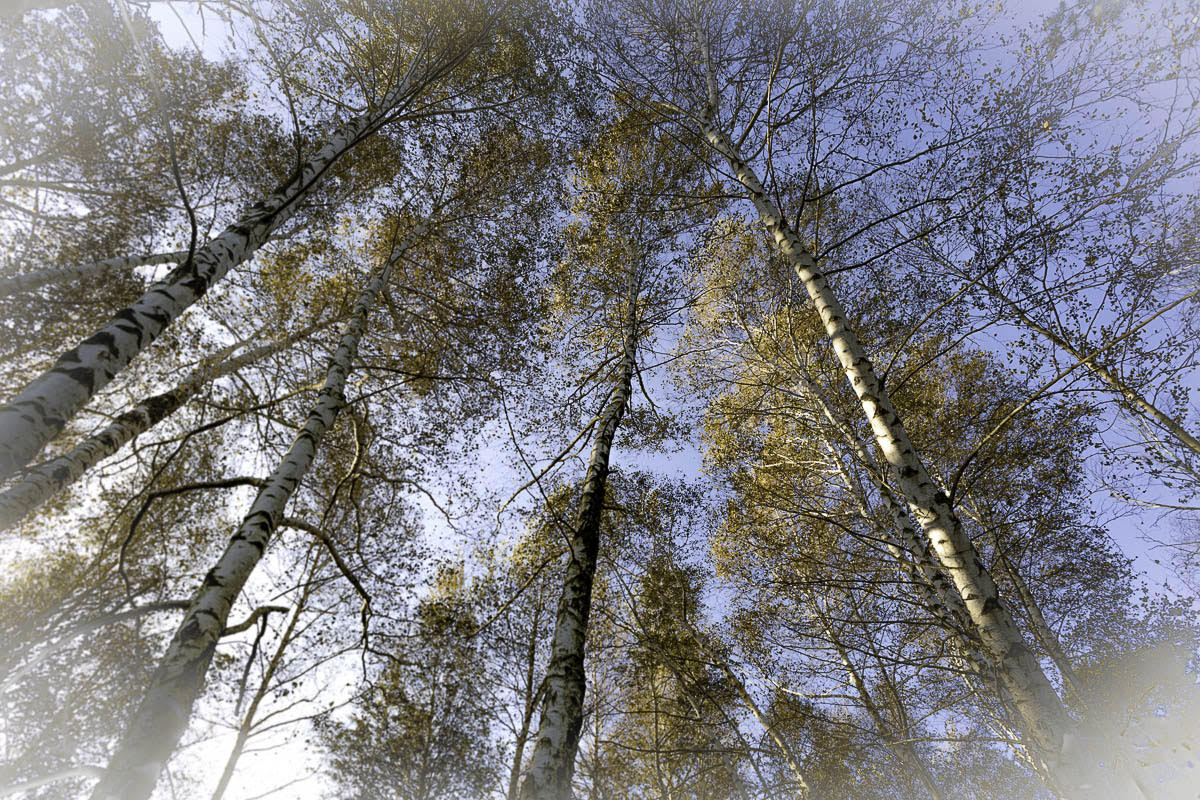 Prompt 2: Spend a few minutes with this photograph and journal about its relationship to this month’s Monastic Way. You can do that with prose or a poem or a song or...
Prompt 2: Spend a few minutes with this photograph and journal about its relationship to this month’s Monastic Way. You can do that with prose or a poem or a song or...
Prayer
O God,
whose word comes to me in so many ways,
be with me today as I ponder your Word in Scripture.
Speak to me that I may hear Your words afresh.
Open my heart that it might be filled with Your words of love.
Strengthen me and I seek to live out Your word
in acts of love and kindness and justice
toward my neighbor. Amen.
—National Council of Churches
JOAN CHITTISTER is an internationally known author and lecturer and a clear visionary voice across all religions. She has written more than 60 books and received numerous awards for her writings and work on behalf of peace and women in the church and in society.
KAREN BUKOWSKI, an Erie native, is a nature photographer and former LPGA and PGA Golf Professional who holds a master’s degree in public administration. Visit karenbukowskiphotography.com to find many nature and landscape photographs.

 Artwork: by Karen Bukowski
Artwork: by Karen Bukowski
